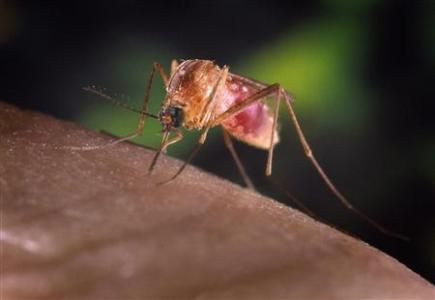World Malaria Day 2021: Theme, Facts And Crucial Information About The Disease
World Malaria Day, commemorated every April 25, is a global event to raise awareness about malaria and call for further efforts in the battle against it, Awareness Days noted. It is the perfect time to educate ourselves about this deadly disease that has taken millions of lives.
"The theme for this year is "Zero Malaria – Draw the Line Against Malaria" because every malaria case is preventable, and every malaria death is unacceptable," World Health Organization (WHO) Regional Director for Africa, Dr. Matshidiso Moeti, said in a message for World Malaria Day.
This year, WHO is also congratulating the countries that are working hard to achieve zero malaria cases.
"Many of the countries we are recognizing today carried, at one time, a very high burden of malaria. Their successes were hard-won and came only after decades of concerted action," WHO Director-General, Dr. Tedros Adhanom Ghebreyesus, said in a news release. "Together, they have shown the world that malaria elimination is a viable goal for all countries."
According to the WHO, in 2019, 46 of the 87 countries burdened with malaria reported less than 10,000 cases of the disease compared to just 26 countries in 2000. And even during the COVID-19 pandemic, when delivery of malaria preventive measures was disrupted, some countries still managed to maintain their efforts to combat malaria. Some even saw a massive drop in "imported cases" because of the pandemic-related restrictions, the WHO said in a report.
Still, the battle is not yet won. Other nations that faced spikes in malaria cases because of the pandemic include Bhutan, where the distribution of all-important mosquito nets and other malaria preventive measures were delayed in 2020.
What's more, there were also 384,000 preventable malaria deaths in the WHO African Region in 2020. The region also accounted for 94% of malaria cases and deaths in 2019.
In the U.S., the Centers for Disease Control and Prevention (CDC) also noted that in 2017, cases of malaria in the country were at their highest in the past 45 years.
On this day, let's look at some facts about the deadly disease. (Courtesy -- WHO, the CDC)
- Malaria can be deadly or life-threatening but it can usually be prevented.
- The disease is caused by Plasmodium parasites transmitted through the bite of female Anopheles mosquitoes.
- It is a leading cause of preventable illness in the world. In the U.S., malaria was eliminated 70 years ago but it still infects some 2,000 people each year.
- Although its initial symptoms such as fever, headache and chills may be mild, it can progress to become a severe disease if not treated within 24 hours.
- 3.4 billion people are at risk of getting malaria. Infants, young children, pregnant women, travelers and people with HIV/AIDS are among the most at risk for contracting it.
- Since 2000, the number of annual global deaths from malaria has been cut by half, amounting to 7.6 million lives being saved.
- Over two-thirds of all malaria deaths occur in children under five years old. In 2019, for instance, they comprised 67% of all malaria deaths worldwide.
- Malaria can be prevented by using insecticide-treated mosquito nets, anti-malarial medicines and spraying insecticides.

© Copyright IBTimes 2025. All rights reserved.






















